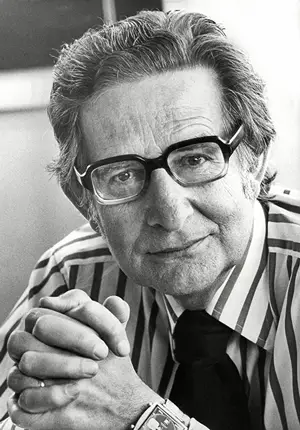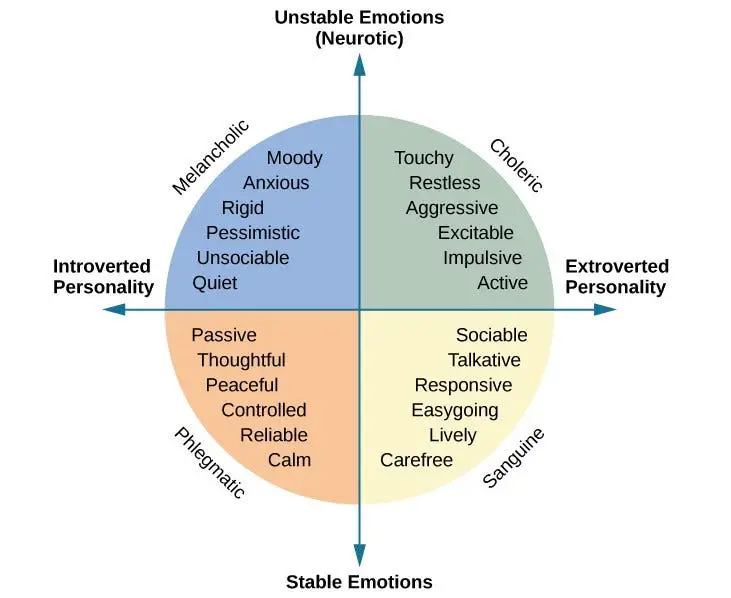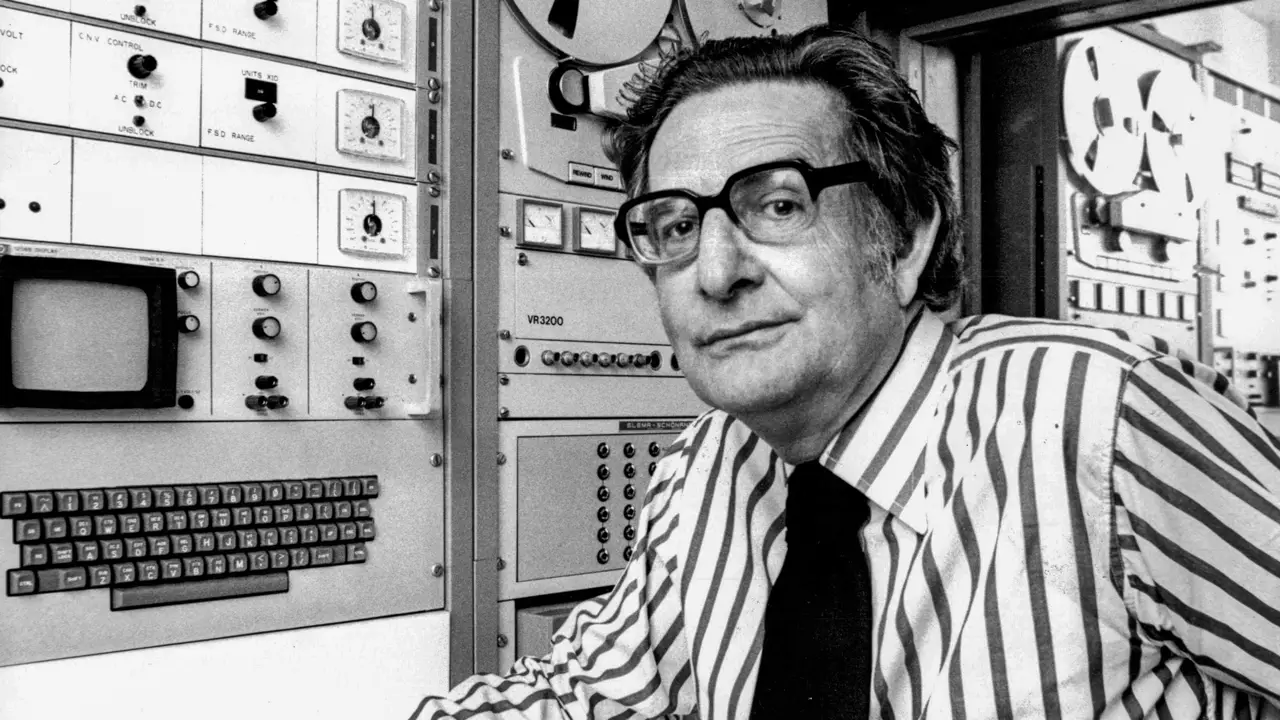Contents
Introduction
Hans Eysenck was a towering figure in psychology, renowned for his extensive research in the fields of personality and intelligence. He is best known for developing the PEN model of personality, which highlighted three key dimensions: psychoticism, extraversion, and neuroticism. Eysenck’s work laid the foundation for many contemporary personality theories and sparked significant debate due to his controversial views on intelligence and its genetic components. His work has had a lasting impact, influencing both clinical practice and research in psychology.

This article explores Eysenck’s life, major theories, and the lasting influence his work has had on modern psychology, particularly in the areas of personality and intelligence research.
Early Life and Education
Hans Eysenck was born on March 4, 1916, in Berlin, Germany. His early life was shaped by his experiences growing up in a culturally vibrant yet politically tumultuous environment. His family’s involvement in the arts provided him with a broad worldview, but the rise of the Nazi regime in Germany forced him to flee to England in the 1930s. This dramatic change in circumstances greatly influenced his later intellectual development and academic pursuits.
Image Source: The Open University

Educational Journey
| Aspect | Details |
|---|---|
| Undergraduate Education | Eysenck initially planned to study physics but turned to psychology after discovering his passion for the human mind. He attended University College London, earning a degree in psychology. |
| Graduate Studies | He continued at University College London, where he completed his Ph.D. in psychology. His dissertation focused on the role of personality in learning, marking the beginning of his lifelong interest in individual differences. |
| Postdoctoral Work | Eysenck’s early academic career involved extensive work in experimental psychology and psychometrics. His focus on empirical research and rigorous statistical analysis became hallmarks of his career. |
| Academic Positions | Eysenck served as the head of the psychology department at the Institute of Psychiatry, King’s College London, where he established one of the world’s leading psychology research centers. |
Influences and Early Career
| Aspect | Details |
|---|---|
| Charles Spearman | Eysenck was greatly influenced by Charles Spearman‘s work on intelligence, particularly the development of the g factor, which posits that general intelligence underlies cognitive abilities. |
| Sigmund Freud | Despite training in psychoanalysis, Eysenck became one of its most vocal critics. He believed that Freudian methods lacked empirical support, steering his research towards more scientific approaches. |
| Behaviorism | Eysenck was influenced by behaviorist theories but sought to incorporate personality traits into models of learning and behavior, leading to his groundbreaking work on personality. |
| Carl Jung | Eysenck’s conceptualization of personality traits, especially introversion and extraversion, drew inspiration from Carl Jung’s early work on psychological types. |
| Factor Analysis | Eysenck utilized advanced statistical techniques like factor analysis to identify underlying personality traits, which became the basis for his PEN model of personality. |
Major Theories and Work

PEN Model of Personality
Hans Eysenck’s PEN model is one of his most significant contributions to psychology. The model outlines three dimensions of personality:
- Psychoticism (P): Refers to traits associated with aggressiveness, impulsivity, and antisocial behavior. Individuals high in psychoticism are more likely to engage in risky or deviant behavior.
- Extraversion (E): Eysenck described extraversion as a preference for social interaction, stimulation, and activity. Extraverts are outgoing, energetic, and tend to seek external excitement.
- Neuroticism (N): This dimension measures emotional instability and the tendency to experience negative emotions such as anxiety, depression, and irritability. High neuroticism is associated with emotional overreaction to stress.

Intelligence and Genetics
Eysenck’s views on intelligence were controversial due to his assertion that intelligence has a strong genetic component. He argued that IQ is primarily inherited and that environmental factors play a relatively minor role in shaping cognitive abilities. His work emphasized the importance of biological and neurological factors in determining intelligence, aligning him with the nature side of the nature vs. nurture debate.
- g Factor: Eysenck supported Charles Spearman’s concept of the g factor, or general intelligence, proposing that this single underlying factor accounts for much of the variance in individuals’ cognitive abilities.
- Intelligence Testing: Eysenck was a major proponent of intelligence testing and argued for its validity in identifying cognitive differences across populations. His work on IQ has influenced educational and clinical practices, although it has also attracted criticism, particularly for its implications regarding racial differences in intelligence.
Image Source: Semantic Scholar
Famous Books and Publications

Dimensions of Personality

The Psychology of Politics

The Biological Basis of Personality

The Structure and Measurement of Intelligence
Influence on Contemporary and Future Psychological Research
- Personality Research: Eysenck’s development of the PEN (Psychoticism, Extraversion, Neuroticism) model has profoundly influenced contemporary personality research, particularly in exploring the biological and genetic components of traits. His emphasis on empirical validation has advanced psychometrics and personality assessments, shaping the ways psychologists measure and interpret personality in both clinical and research contexts.
- Intelligence Studies: Eysenck’s work on the genetic basis of intelligence sparked ongoing research into the hereditary influences on cognitive abilities. Though controversial, his focus on intelligence genetics has prompted further exploration into the complex interplay between genetics and environmental factors in cognitive development, inspiring both support and critical evaluation in modern intelligence research.
- Cognitive-Behavioral Therapy (CBT): Eysenck’s endorsement of behavioral therapy was instrumental in promoting the rise of CBT as a primary method in mental health treatment. His empirical critique of psychoanalysis shifted focus toward evidence-based therapeutic practices, influencing the development of contemporary therapeutic models that prioritize measurable outcomes and structured interventions in mental health care.
Psychologists and Educators Influenced by Hans Eysenck

- Raymond Cattell: A contemporary of Eysenck, Cattell developed the 16 Personality Factors (16PF) model, which was influenced by Eysenck’s pioneering work on factor analysis and trait theory. His research contributed to understanding personality structure and measurement.
- Jeffrey Gray: A student of Eysenck, Gray expanded his mentor’s work by developing Reinforcement Sensitivity Theory (RST), which explores the neurobiological mechanisms behind personality traits, particularly focusing on responses to reward and punishment.
- Michael Eysenck: The son of Hans Eysenck, Michael made significant contributions to cognitive psychology and personality research, often collaborating with his father on studies of memory, anxiety, and individual differences in cognition.
- Hans Jürgen Eysenck: Eysenck’s grandson, a psychologist, continues the family legacy by researching intelligence and personality, further advancing the study of individual differences and building upon the theoretical foundations established by his grandfather.
Impact on Psychology
- Influence on Modern Thought: Geoffrey Miller‘s exploration of evolutionary psychology, particularly the role of sexual selection in shaping human intelligence and creativity, has profoundly influenced contemporary psychological thought. His research emphasizes that cognitive and creative traits evolved not only for survival but also for enhancing reproductive success and social status. By drawing attention to the interplay between biology, cognition, and social behavior, Miller has provided a comprehensive framework for understanding human intelligence and creativity, impacting a wide range of disciplines, including psychology, anthropology, and sociology.
- Legacy and Recognition: Miller’s contributions have earned him numerous honors, including the APA Award for Distinguished Scientific Contributions, recognizing his pioneering research in evolutionary psychology. He was awarded the Lifetime Achievement Award from the Evolutionary Psychology Division of the APA and an Honorary Doctorate from the University of New Mexico, reflecting his influence on understanding human intelligence. Elected as a Fellow of the American Academy of Arts and Sciences.
Conclusion
Hans Eysenck’s pioneering work in personality psychology and intelligence research has had a profound and lasting impact on the field of psychology. By introducing the PEN model and advocating for the biological basis of personality traits, Eysenck provided a new framework for understanding individual differences. His controversial views on intelligence and his empirical critique of psychoanalysis spurred debates that continue to influence contemporary psychological research. Eysenck’s legacy as a trailblazer in the study of human behavior ensures that his contributions will continue to shape the future of psychology.
Bibliography
- Eysenck, H. J. (1947). Dimensions of Personality. Routledge.
- Eysenck, H. J. (1953). The Structure of Human Personality. Methuen.
- Eysenck, H. J. (1967). The Biological Basis of Personality. Charles C Thomas.
- Eysenck, H. J. (1982). Intelligence: The Battle for the Mind. Pergamon Press.
- Eysenck, H. J., & Eysenck, M. W. (1985). Personality and Individual Differences. Plenum Press.
- Eysenck, H. J. (1989). Mindwatching: Why We Behave the Way We Do. Prentice Hall.
- Eysenck, H. J. (1991). The Measurement of Intelligence. Springer.
- Eysenck, H. J. (1979). The Psychology of Politics. Transaction Publishers.
- Eysenck, H. J. (1980). The Causes and Effects of Smoking. Temple Smith.
- Eysenck, H. J., & Rachman, S. (1965). The Causes and Cures of Neurosis. Routledge.
